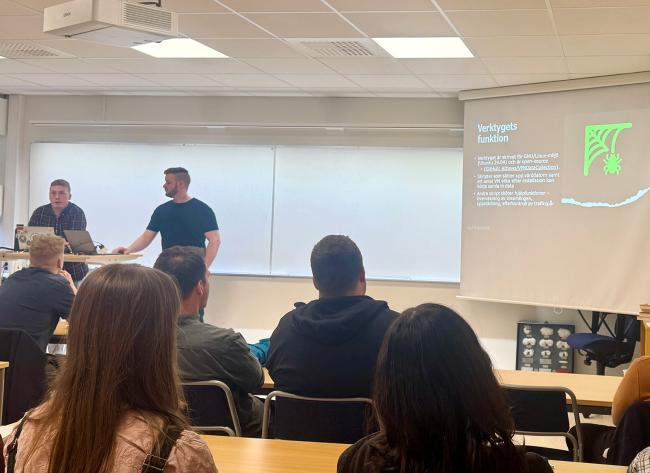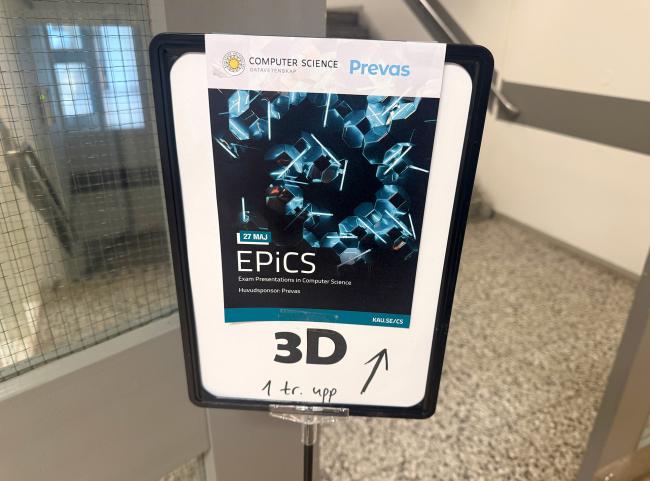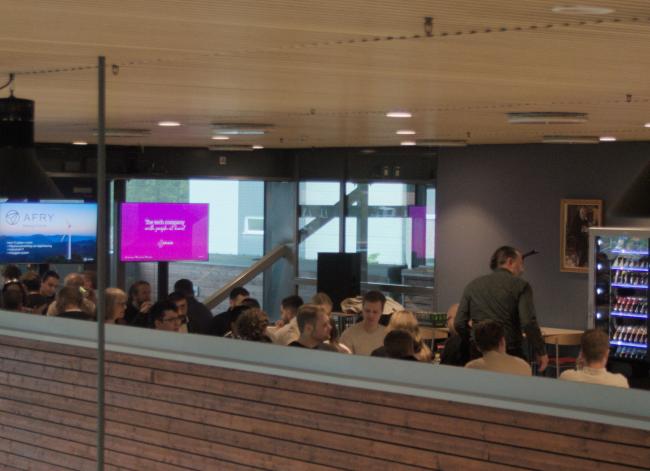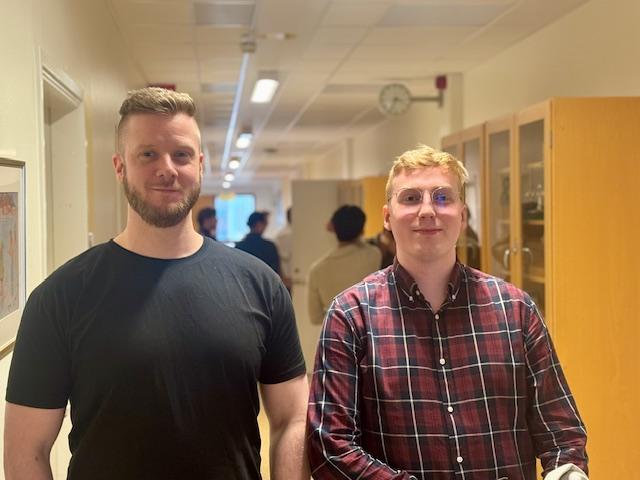Computer Science theses presented at EPiCS
2025-06-02On May 27, computer science students presented their theses to an open audience that included companies, faculty, and fellow students.
The new format, where students give presentations of their theses, was introduced under the name EPiCS. It featured over 30 presentations held in three parallel sessions. The day concluded with a dinner in Building 21 in the evening.
One of the presentations was given by students Rasmus Melin and Simon Andersson. Their work on network measurements to improve the traffic analysis protection service DAITA attracted a full room of attendees.
“It went better than we expected. We were nervous, but it feels great to present what we've worked on. The most fun part of our project was writing code and doing the practical work rather than the theoretical,” said Rasmus.
“It’s been great that companies got involved, and fun that they wanted to come and listen,” added Simon Andersson.
A thesis that makes a difference
“Two thesis projects conducted network measurements of DAITA. DAITA is the protection we’ve built with Mullvad as part of the DRIVE project. This is important because AI can now analyze encrypted traffic and infer user behavior. The goal is to strengthen online privacy protection, and the results from the students’ network measurements will have led to improvements in DAITA,” said Tobias Pulls, researcher and thesis supervisor.
Karlstad University, in collaboration with Mullvad VPN, has developed a protection against AI-based traffic analysis called DAITA. The protection is included in Mullvad’s VPN app and works by creating "noise" in the traffic, making it harder for AI to identify patterns in encrypted communication.
"Our new event strengthens the connection between companies and the university, while increasing their visibility among students through sponsorship and thesis collaborations. Open presentations offer insight into the role of an external project partner and can inspire future thesis ideas. The final celebration was the perfect ending – and we've now laid the foundation for something even bigger next year!", said Caj Rollny, lecturer and organiser.
“Our first EPiCS had a high level of engagement, and the feedback from students, companies, families, and faculty was overwhelmingly positive. We hope it becomes a recurring event,” said Roger Renström, who led the EPiCS project.









